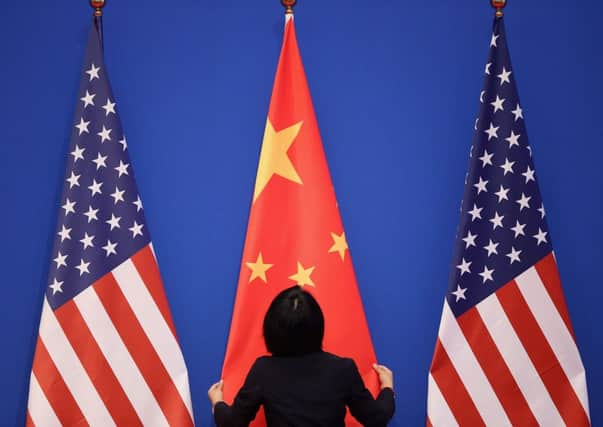US and China flag up wish to co-operate


Opening this year’s “Strategic and Economic Dialogue”, Chinese president Xi Jinping stressed the need to avoid confrontation between nations accounting for a quarter of the world’s people and a third of the global economy.
His theme was largely echoed by US Secretary of State John Kerry and treasury secretary Jack Lew, leaders of an American delegation that also included Federal Reserve chairwoman Janet Yellen and three other cabinet members in President Barack Obama’s administration.
Advertisement
Hide AdAdvertisement
Hide AdThe next two days are a test of whether the annual high-level talks can produce tough compromises or just serve as a venue to mull over greater co-operation.
Washington hopes to secure closer co-ordination with China on combating climate change, end to Chinese industrial cyber-espionage and agree stricter rules over contested claims to Asia’s resource-rich seas.
Mr Xi made it clear China wouldn’t be pushed around. “The vast Pacific Ocean has ample space to accommodate our two great nations,” he said.
Differences between the US and China, he added, were “natural” and the only path forward was respect for each other and “refrain from imposing your will or model on the other side”.
Referring to territorial disputes, he said the US must respect Chinese “territorial integrity”.
US allies Japan and the Philippines, as well as Vietnam, have become increasingly worried by Chinese efforts to drill for oil or assert sovereignty in waters they also claim. China also has tried to control contested airspace.
The US has said it takes no sides on competing claims. But its effort to establish rules for settling the disputes has not gained ground with Beijing.
Mr Obama hailed the 35th anniversary of US and Chinese diplomatic relations and referred to a pledge he made with Mr Xi at a summit last year in California to establish a “new model” of superpower co-operation.
Advertisement
Hide AdAdvertisement
Hide AdSpeaking in Beijing, Mr Kerry said: “A new model is not defined in words. It is defined in actions … by the choices we can make together.”
US and Chinese officials will canvas 60 topics today. Economic friction centres on the valuation of China’s currency and claims by US firms of unfair restrictions in China.
Strategic discussions include the threat posed by nuclear-armed North Korea. On climate change, the world’s two biggest carbon emitters announced eight new projects aimed at capturing and storing carbon, and setting up more efficient energy grids.
They also agreed to stronger fuel efficiency standards for vehicles and to study gas use in industrial boilers.
The US has the biggest economy and strongest military, but China’s economy is set to surpass it in the coming decades and its armed forces are rapidly gaining strength.
Human rights were not a focus of the first day’s talks. In a snub to the US, a Tibetan writer and recipient of a state department award for courage, Tsering Woeser, was placed under house arrest along with her husband late on Tuesday.
No US official mentioned the cyber-hacking dispute between Washington and Beijing that has simmered since the US indicted five Chinese officers on charges of stealing trade secrets from US companies’ computers.